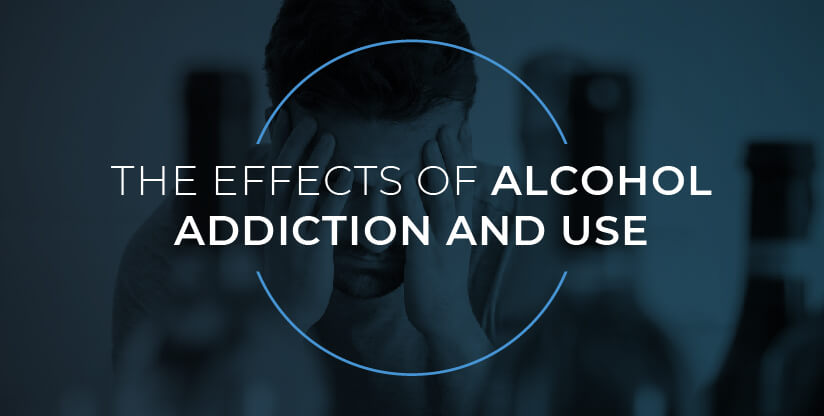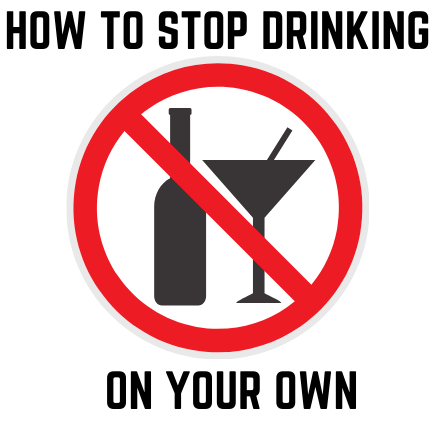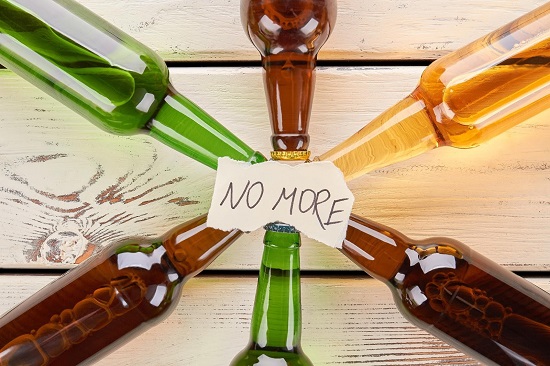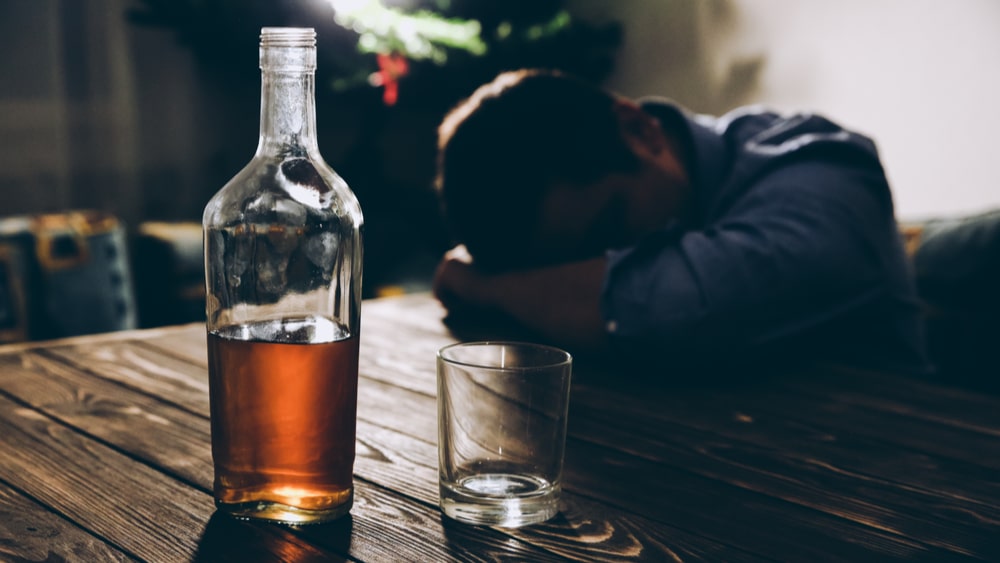It’s true that many people turn to alcohol for a temporary escape from their problems. It can be difficult and uncomfortable to face your problems head-on, so it’s easier just to drink them away. But what are the consequences of drinking? More often than not, you wake up feeling awful with a pounding headache, dry mouth, and guilt. This is called “the hangover.” And if you’re one of those people who drink until they pass out every night because they don’t want to deal with life anymore, then it might be time for some tough love. There are many methods on how to stop drinking.
Contents
What Is Alcohol Addiction?
 Alcohol addiction is a compulsive need to drink alcohol. People who suffer from alcoholism will do anything and everything they can to get their hands on more booze. Alcoholics have lost control of the amount they’re drinking, or when they stop drinking in order to avoid blacking out or suffering other symptoms that come with heavy intoxication, like slurred speech and lack of motor coordination. The most common form of alcohol abuse consists of binge drinking once every week or two; however, some people choose to instead drink heavily for extended periods during special occasions such as the Christmas holidays.
Alcohol addiction is a compulsive need to drink alcohol. People who suffer from alcoholism will do anything and everything they can to get their hands on more booze. Alcoholics have lost control of the amount they’re drinking, or when they stop drinking in order to avoid blacking out or suffering other symptoms that come with heavy intoxication, like slurred speech and lack of motor coordination. The most common form of alcohol abuse consists of binge drinking once every week or two; however, some people choose to instead drink heavily for extended periods during special occasions such as the Christmas holidays.
On average, People consume about seven liters (or approximately twenty beers) per year; this comes down to roughly 18 drinks each month for men aged 21 years old and up. Women drink about half as much.
Negative Impacts of Alcohol Addiction

There are negative impacts of alcohol addiction on everyone:
Impacts Health Issues
There are any impacts on physical health, including heart disease, stroke, cancer, and liver cirrhosis. This also means that unborn children can suffer damage, including fetal alcohol syndrome.
Impacts Mental Health
Alcohol addiction can also lead to mental health problems such as anxiety and depression. This is because when people drink heavily, they often lose touch with reality or the ability to make good decisions for themselves.
Damages Relationships
Heavy drinking also damages relationships with family members, friends, and romantic partners. People who are addicted to alcohol will often neglect their responsibilities in order to drink, become angry and argumentative when drunk, and even resort to violence. They may also experience memory loss or blackouts related to their drinking which can cause further tension in personal relationships.
Costs Financial Problems
People who are addicted to alcohol may lose their jobs, suffer issues related to child custody and visitation, or have legal troubles as a result of drinking. This can lead not only to lost income but also money spent on bail fees and court costs.
Impacts Society
Alcoholism is a serious issue that impacts society as a whole. It’s estimated that alcohol abuse and addiction cost the United States over $250 billion per year, not including how much it costs to treat people who are addicted or drunk drivers who cause car accidents at fault for injuring other people.
How To Stop Drinking?

There can be a number of ways to stop drinking. Some people prefer getting proper treatment at a rehab center, while others choose to go it alone and try a 12-step program or home treatment.
Rehab Centers
Rehab centers can offer different types of treatments, including inpatient and outpatient programs. They often have staff who are trained in helping people with alcohol addiction recover, such as psychiatrists, therapists, and nurses. Inpatient rehab requires that you live at the facility for the duration of your treatment, which can last anywhere from 30 days to several months. Outpatient rehab allows you to continue living at home but attend therapy sessions several times per week.
12 Step Programs

The 12 step program was created by Alcoholics Anonymous (AA) and is one of the most popular ways to stop drinking on your own. This program centers on the belief that alcoholism is a disease and that people need outside help to recover from it. The 12 steps are as follows:
Step 1: Admit You Have Problem.
This is the first step of the 12-step program to stop drinking. You may think that you are not an alcoholic, but if your friends and family say otherwise maybe it’s time for you to look at the bigger picture. If you drink more than 3 drinks in one day or can’t remember what happened last night then this article is for you. This step is all about admitting that you need help and taking the first step to getting better.
Step Two: Seek Professional Help.
There is no shame in admitting that you need help to stop drinking. There are many resources available to you, including 12-step programs, rehab centers, and therapy sessions. Don’t be afraid to ask for help from your friends or family either. They may have gone through a similar experience and can offer advice or support. It also never hurts to do some research online and find the best program for you.
Step Three: Get Rid of All Alcohol In Your House.
This includes beer, wine, liquor, and anything else that contains alcohol. If it’s not in your house then you can’t drink it! This is an important step in the 12-step program because if you have easy access to alcohol then it will be much harder for you to stay sober. It also might be a good idea to get rid of any alcohol-related paraphernalia in your houses, such as shot glasses and beer cans.
Step Four: Make Commitment To Yourself.
This step is all about making a commitment to yourself and your sobriety. You need to be honest with yourself and set realistic goals for how you want to live your life without alcohol. It’s important to remember that it will take time and effort but you can do it!
Step Five: Join Some Support Group
There are many 12-step programs available across the country, so there’s sure to be one near you. This is an important step in the 12-step program because it provides you with a support group of people who are going through the same experience. They can help you stay focused and provide advice based on your own experiences.
Step Six: Practise Self-Care
This is important because it helps your body focus more on getting better rather than recovering from a hangover or detoxifying your system after drinking too much alcohol for several days in a row. This step is all about taking care of yourself physically so that you’re able to make better decisions when dealing with addiction problems.
Step Seven: Make List of Your Triggers.
Triggers are things that make you want to drink. It could be a certain song, person, or place. Once you know what your triggers are, you can work on avoiding them or dealing with them in a healthy way. This step is important because it helps you take control of your addiction and prevents you from relapsing.
Step Eight: Avoid Situations That Might Lead To Drinking
This step goes hand in hand with Step Seven. If you know that a certain party or gathering will have alcohol then avoid it! This is not always easy to do but it’s an important part of staying sober. It’s also helpful to have a list of excuses ready so that you can politely decline any invitations to drink.
Step Nine: Get Rid Of Temptation
If there are bottles of liquor in your house, get rid of them! If there are places where you like to drink, like bars or clubs, stop going there. This is another difficult step but it’s important in order to stay sober. In this step, you’re getting rid of anything that might tempt you to drink, so it’s important that this doesn’t become too extreme.
Step Ten: Make Lists Of What You Are Grateful For
This helps focus your thoughts on the positive things in life and makes alcohol seem less appealing than before. This step is all about appreciating what you have rather than looking for something else outside yourself to make you feel better or happier. It also reminds us why we decided to quit drinking in the first place.
Step Eleven: Write Down Pros And Cons Of Drinking
It may be easier said than done but try not to get angry with yourself when thinking about the pros/cons list because after a while it does work really well just like I mentioned above in my recent blog post.
Step Twelve: Get Professional Help If You Need It
This is important because you might need professional treatment in order to stay sober and overcome a serious alcohol addiction problem. Many rehab centers offer free or low-cost programs that can help you get your life back on track, so check them out! In this step of the twelve steps, we learn that it’s okay if things don’t go perfectly right away but with time and effort, anything is possible.
Self-Help Techniques On How To Stop Drinking

There are many different ways that you can try to stop drinking on your own. Here are a few of the most popular techniques:
• Cold turkey: This is when you abruptly stop drinking without any preparation or support. While this might work for some people, it’s usually not recommended because it can be very difficult and lead to relapse.
• Tapering off: This is where you slowly reduce the amount of alcohol you drink over a period of time. This is a more gradual approach and can be less harsh than quitting cold turkey.
• Moderation management: This technique encourages people to drink within safe limits in order to avoid developing an addiction problem. It’s important to remember that moderation is different for everyone so there is no one-size-fits-all solution.
• Self-help groups: These include Alcoholics Anonymous, SMART Recovery, and Secular Organizations for Sobriety (SOS). They provide support from other people who have been in similar situations to yours as well as offer different techniques on how to stop drinking alcohol. If you are having a hard time staying sober then consider joining one of these self-help groups because they can be very helpful.
Conclusion
In conclusion, there are many different ways that you can try to stop drinking on your own. If you find that you’re struggling then don’t be afraid to seek professional help because it can be very beneficial. Remember to focus on the positive things in life and stay strong! You can do this!
Thank you for reading my blog post on how to stop drinking alcohol. I hope it was helpful! Please feel free to share this post with your friends and family if you think they might find it useful. Also, don’t forget to check Therapy Manta for more helpful information. Have a great day!
A Word From Therapy Mantra
Your mental health — your psychological, emotional, and social well-being — has an impact on every aspect of your life. Positive mental health essentially allows you to effectively deal with life’s everyday challenges.
Also, at Therapy Care, we have a team of therapists who provide affordable online therapy to assist you with issues such as depression, anxiety, stress, relationship, OCD, LGBTQ, and PTSD. You can take our mental health test. You can also book a free therapy or download our free Android or iOS app.


